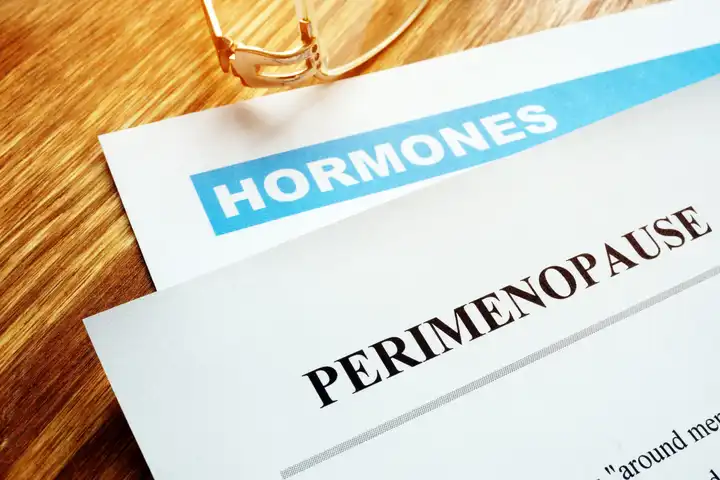Many women in their 40s and early 50s experience depression symptoms without realizing that these emotional shifts are linked to premenopausal changes. This transitional phase, also known as perimenopause, brings fluctuating hormone levels that can significantly impact mood and mental health.
Some women may not immediately associate their feelings of sadness, anxiety, or lack of motivation with premenopausal changes. Instead, they may think they are simply stressed, overwhelmed, or even questioning their life choices. This can lead to frustration, confusion, and self-doubt, further intensifying depression symptoms.
If left unmanaged, these mood changers can also affect relationships, work performance, and overall quality of life. Women may feel too tired to engage in social activities, struggle to communicate their emotions, or experience increased conflict with their partners due to irritability and mood swings. Understanding the connection between premenopausal changes and mental health is the first step toward taking control of emotional well-being.
Learn more about what premenopause is and how it affects your body.

Why Do Depression Symptoms May Increase During Premenopause?
Hormonal changes play a significant role in depression symptoms during premenopause. Estrogen and progesterone influence brain chemicals like serotonin and dopamine, which regulate mood, sleep, and overall emotional balance. When these hormone levels fluctuate or decline, they disrupt neurotransmitter activity, leading to mood changers such as sadness, anxiety, and irritability.
However, hormones aren’t the only factor. Other contributors include:
- Sleep disturbances – Many premenopausal women experience night sweats and insomnia, leaving them feeling constantly exhausted.
- Chronic stress – Balancing work, family, and personal life can become increasingly overwhelming.
- Nutrient deficiencies – Low levels of vitamin D, magnesium, and omega-3s are linked to poor mental health.
- Physical discomfort – Headaches, bloating, and joint pain can contribute to emotional distress.
- Relationship strain – Increased irritability and emotional withdrawal can cause misunderstandings with partners, family, or friends.
Common Depression Symptoms in Premenopausal Women
Not all women experience severe depression symptoms during premenopause, but those who do often notice:
- Persistent sadness – Feeling down for long periods without a clear reason.
- Irritability and mood swings – Quick emotional changes that make interactions difficult.
- Loss of interest – No longer enjoying hobbies, socializing, or intimacy.
- Fatigue and low energy – Constant exhaustion, even after resting.
- Sleep problems – Trouble falling asleep or waking up frequently at night.
- Increased anxiety – Constant worry, nervousness, or feelings of panic.
- Brain fog and forgetfulness – Difficulty concentrating or recalling details.
- Unexplained weight changes – Gaining or losing weight due to hormonal fluctuations.
- Emotional withdrawal – Avoiding social interactions and feeling disconnected from loved ones.
These symptoms can affect personal and professional relationships, making it difficult to maintain emotional connections. Some women may feel misunderstood by their partners, leading to tension and increased isolation.
If these mood changers persist for more than two weeks, seeking medical support is essential.

How Depression Symptoms Affect Relationships
ne of the most overlooked effects of premenopausal depression symptoms is the impact on relationships. Many women feel increasingly tired and emotionally drained, which can lead to:
- Less patience with family members – Small things that never used to be an issue suddenly feel overwhelming.
- Decreased libido – Hormonal shifts and fatigue can lower sexual desire, leading to intimacy struggles.
- Communication difficulties – Mood swings may cause misunderstandings and frustration.
- Social withdrawal – Feeling too exhausted to engage in social events, leading to isolation.
If a woman doesn’t realize that her depression symptoms are linked to premenopausal changes, she might feel like she’s “losing herself” or “not the same person anymore.” Partners and family members might misinterpret these changes as a loss of interest or emotional detachment, which can create distance in relationships.
Talking openly with loved ones about premenopausal changes and seeking professional guidance can help maintain emotional connections during this challenging time.
Learn more about premenopause and mental health here.

Scientific Research on Premenopausal Depression Symptoms
1. Hormonal Influence on Mood
Research from Harvard Medical School confirms that women are twice as likely as men to experience depression, and the risk increases during premenopausal years due to hormonal shifts (Harvard Health).
2. Link Between Estrogen Decline and Depression
A study published in the *Journal of Clinical Psychiatry * found that premenopausal women experiencing significant mood swings were at a higher risk of developing clinical depression compared to those with stable hormone levels.
3. Sleep Disruptions and Depression
A 2020 study from the National Institute of Mental Health found that sleep disruptions caused by premenopausal symptoms directly contribute to an increased risk of depression (NIMH).
4. Exercise as a Mood Booster
he Mayo Clinic states that regular exercise helps counteract depression symptoms in premenopausal women by increasing serotonin and endorphin production (Mayo Clinic).

How to Manage Depression Symptoms in Premenopause
1. Improve Nutrition
A diet rich in brain-boosting nutrients can help regulate mood:
- Omega-3 fatty acids (found in salmon, walnuts, and flaxseeds) improve brain function.
- Magnesium (found in leafy greens, nuts, and seeds) reduces stress and promotes relaxation.
- Vitamin D (from sunlight, fortified foods, and supplements) supports serotonin production.
2. Prioritize Sleep
Lack of sleep worsens mood changers, so maintaining a healthy bedtime routine is crucial. Avoiding screens before bed and practicing relaxation techniques like deep breathing can help.
3. Exercise Regularly
Physical activity releases endorphins, which combat depression symptoms. Yoga, walking, and strength training can help reduce anxiety and improve overall mood.
4. Seek Emotional Support
Opening up to friends, family, or a therapist can help process emotions and reduce feelings of isolation. Joining a premenopausal support group can also provide reassurance.
5. Consider Medical Help
If depression symptoms are severe, therapy (such as cognitive behavioral therapy) or medication (like SSRIs) may be necessary. A doctor can assess symptoms and recommend appropriate treatment.
Conclusion: Understanding Premenopausal Depression Symptoms
Many women experience depression symptoms during premenopause without realizing that hormonal shifts are the root cause. These mood changers can impact relationships, energy levels, and emotional well-being, making it essential to recognize and address them early.
By prioritizing nutrition, sleep, exercise, and emotional support, women can navigate this phase with greater ease. If depression symptoms persist, seeking medical guidance is crucial for maintaining a balanced and fulfilling life.







